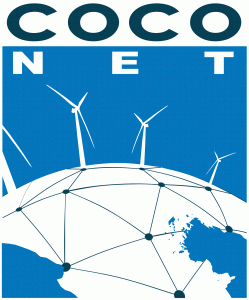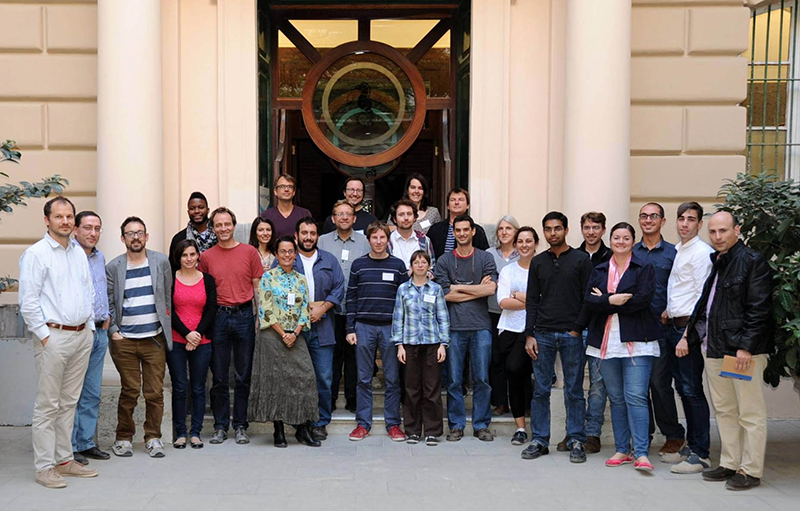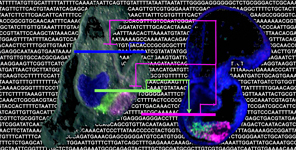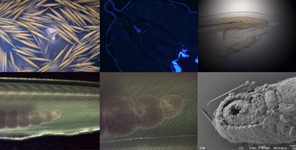 Tenders and Job Opportunities
Tenders and Job Opportunities Job calls
Job calls Scholarships and research fellowships
Scholarships and research fellowships Open Calls
Open Calls ENGLISH
ENGLISH Pages
Pages
Pages
COCONET

COCONET - Towards COast to COast NETworks of marine protected areas (from the shore to the high and deep sea), coupled with sea-based wind energy potential
Summary
The Project will identify groups of putatively interconnected MPAs in the Mediterranean and the Black Seas, shifting from local (single MPA) to regional (Networks of MPAs) and basin (network of networks) scales. The identification of physical and biological connections with clear the proceses that govern patterns of biodiversity distribution. This will enhance policies of effective environmental management, also to ascertain if the existing MPAs are sufficient for ecological networking and to suggest how to design further protection schemes based on effective exchanges between protected areas. The coastal focus will be widened to off shore and deep sea habitats, comprising them in MPAs Networks. Socioeconomic studies will integrate to knowledge-based environmental management aiming at both environmental protection (MPAs) and clean energy production(OFW). Current legistations are crucial to provide guidelines to find legal solutions to problems on the use of maritime space. Two pilot project (one in the Mediterranean Sea and one in the Black Sea) will test in the field the assumptions of theoretical appproaches. The Project covers a high number of Countries and involves researchers covering a vast array of subjects, developing a timely holistic approach and integrating the Mediterranean and Black Seas scientific communities through intense collective activities and a strong communication line with stakeholders and the public at large.
SZN role
SZN works as sub-partner of CONISMA and is responsible of assessment of genetic diversity and connectivity within Pilot sites (South Adriatic Sea and Black Sea) in two seagrass species, Posidonia oceanica and Zostera noltei.
Partners
3e, Belgium; Clu, Italy; Cnr-Ismar, Italy; Cnrs, France; Coispa, Italy; Conisma, Italy; Csic, Spain; Dtu Aqua, Denmark; Geoecomar, Romania; Hcmr-Ioo, Greece; Iber-Bas, Bulgaria; Ibmk, Montenegro; Ibss Nasu, Ukraine; Ieo, Spain; Ih Cantabria, Spain; Inat, Tunisia; Io-Bas, Bulgaria; Iolr, Israel; Israbat, Morocco; Istanbul University, Turkey; Metu, Turkey; Mhi, Ukraine; Naturebureau, Uk; Nea, Georgia; Nenuphar, France; Nersc, Norway; Nimrd, Romania; Obibss, Ukraine; Rshu, Russia; Sinop University, Turkey; Sio Ras, Russia; Ukrsces, Ukraine; University Of Malta, Malta; University Of Rostock, Germany; University Of The Aegean, Greece; University Of Zadar, Croatia; Unizkm, Albania; Usof, Bulgaria; Ustv, France.
Project lifetime
2012-2015
P. I.
Gabriele Procaccini
Project coordinator: Ferdinando Boero (University of Salento, Italy)
Funding Institution
EU, FP7-KBBE
Contribution to SZN
€ 47,506.65
Website
ESSEM COST

ESSEM COST Action ES0906: Seagrass productivity: from genes to ecosystem management
Summary
The main objective of this Action is to provide the scientific basis for estimating and preserving the goods and services arising from the productivity of European seagrass ecosystems under anthropogenic pressure. Seagrass ecosystems rank with coral reefs and tropical rainforests in their many ecosystem services, yet are drastically declining worldwide as a consequence of both anthropogenic and natural pressures including habitat fragmentation, eutrophication, poor water clarity and climate change stressors. In spite of this, the level of awareness is low and management ineffective. Seagrass research is fragmented and there is little integration between researchers and coastal zone managers. The Action aim is to form a European-wide research coordination network that integrates expertise in physiological ecology, ecological genomics and conservation-resource management.
SZN role
G. Procaccini, Management Committee member and coordinator of the WG2. Develop functional genetic and genomic tools to understand seagrass photosynthetic responses to environmental stressors.
Project lifetime
2011-2014
P. I.
Gabriele Procaccini
Project coordinator: Rui Santos (University of Algarve, Portugal)
Funding Institution
EU - ERF
Website
FB: Seagrass Productivity _ Cost Action ES0906
GRASSMET
GRASSMET - Climate change effects on seagrass secondary metabolism: ecological implications
Summary
This project aims to answer a relevant but yet unexplored question concerning the implications of climate change on seagrass communities: what will be the impact of changes in the relative availability of carbon and nitrogen in the plant’s primary and secondary metabolite profiles and how will this affect seagrasses capacity to defend themselves against oxidative stress and against epiphytes and herbivores? Seagrasses form some of the world's most productive marine ecosystems, with a very high ecological and economical importance and yet little is known regarding the physiological and ecological consequences of climate change on these plants. Most climate change scenarios predict that atmospheric CO2 concentrations will reach values in excess of 700 ppm before 2100, changing the relative availabilities of carbon and other nutrients, with foreseen important impacts on plant metabolism. Based on what is known for land plants, it is expected that C assimilation and N use efficiency will increase with rising CO2 availability, with direct consequences to the C:N balance in plant tissues. In this scenario, it is likely that seagrasses defence capacity be significantly affected, since the molecules involved in defense processes are also rich in carbon and/or nitrogen and share metabolic pathways with carbohydrates and amino acids synthesis. The antioxidant system depends on the activity of several enzymes, phenolic compounds and alkaloids, molecules with distinct compositions. While polyphenols, a large group of phenolic compounds, are N free, alkaloids are N containing compounds. In addition, phenolics, alkaloids and antioxidants, all play important roles in allelopathy and in the plant-epiphytes-herbivores relationships. Therefore, changes in carbon and nitrogen availabilities have the potential to affect not only seagrasses stress responses, but also the settlement of epiphytic communities and the grazing activity. To address this complex question, we designed a stepwise plan, that starts by optimizing the analytical methodologies for the screening and identification of the phenolic compounds, alkaloids, amino acids and soluble sugars in seagrasses, focusing on the molecules known to be relevant to defensive mechanisms, due to their antioxidant, allelopathic or anti-herbivory activity. The second step will be to investigate the effect of high CO2 and different nitrogen concentrations on the phenolics:alkaloids balance. This will be done through a series of manipulative experiments to be conducted in the mesocosm facility already in place at the CCMAR marine station and also by sampling plants at the vicinity of submarine volcanic vents in the Mediterranean where C. nodosa plants are exposed to naturally high CO2 and low nitrogen concentrations. Finally, we will investigate how different metabolite profiles will affect plants-epiphytes-herbivores relationships, again using a series of mesocosm manipulative experiments. To acomplish the ambitious worklplan, we assembled a team that largely derives from two previous sucessful projects that have set the stage for this natural followup, the European Science Foundation COST action "Seagrass productivity: From genes to ecosystem management" (ES0906) and the FCT-funded project "High-CO2 effects on seagrass photosynthetic ecophysiology" (PTDC/MAREST/ 3687/2012). The seagrass Cymodocea nodosa was selected as a model species, for which the team has recently sequenced the full transcriptome, making available a large amount of molecular resources. Methodologically, we shall use an innovative combination of ecophysiological tools, coupled to genetic techniques, in order to link the biochemical processes to the underlying transcriptional responses. Previous work by the team, relating functional genomics with ecophysiology, has revealed new perspectives about how marine angiosperms respond to environmental pressures and have paved the way for this next step.
SZN role
Participant Institution for the genetic characterization of Cymodocea nodosa individuals in situ and in mesocosms experiment and for assessment of gene expression in situ and controlled conditions.
Partners
University of Algarve, Portugal; Stazione Zoologica Anton Dohrn, Italy
Project lifetime
2015-2016
P. I.
Gabriele Procaccini
Project coordinator: Joao Silva (University of Algarve, Portugal)
Funding Institution
Ministerio da Educacao e Ciencia - Portugal
HEATGRASS
HEATGRASS - Tolerance to HEAT stress induced by climate change in the seaGRASS Posidonia oceanica
Summary
Climate change is increasing in the frequency and intensity of extreme heat events during European summers. Heat waves are enhancing the water thermal stratification in the Mediterranean Sea with dramatic consequences for coastal ecosystems. As a consequence of these heat waves, it has recently been predicted that Posidonia oceanica meadows could be functionally extinct by the middle of this century. However, there no exist evidences of this cause-effect relationship and almost nothing is known about the tolerance capacity of this seagrass species to warming. There is, therefore, an urgent need to determine the resilience and acclimation capacity of the species for the conservation of these valuable ecosystems, the functions, and the services they provide. The general objective of this research is to find out how sporadic extreme heat events will affect P. oceanica meadows, and to forecast how they will respond under the effects of climate change along the European Mediterranean coasts. To this end, the present project will be based on mesocosm experimentation and will combine novel transcriptomic and ecophysiological approaches for a comparative analysis of plants from contrasting thermal regimes. The main specific objectives are: i) to determine and analyse on an integrated approach the stress responses and tolerance mechanisms of P. oceanica over the course and recovery period of a simulated heat wave, ii) to identify specific genes associated with the tolerance and resilience of the species to heat stress, iii) to compare whether genotypes from thermally contrasting depths of a population differ in their tolerance and resilience to warming, and iv) to compare whether populations from thermally contrasting localities differ in their tolerance and resilience to warming. Findings will represent a substantial and novel contribution to the capacity of the species to adapt to global warming particularly useful to adopt decisions in management and conservation policies.
SZN role
Project coordinator and host organization
Project lifetime
7/2015-6/2016
P. I.
Funding Institution
EU, FP7-PEOPLE-2013-IEF
Contribution to SZN
€ 249,242.80
HighGrass
HighGrass - High-CO2 effects on seagrass photosynthetic ecophysiology
Summary
The atmospheric concentration of CO2 has been steeply increasing since the beginning of the industrial era. The oceans are responsible for taking up around 25% of the anthropogenic CO2 emitted into the atmosphere, but in this process the seawater chemistry is being altered, with the increase of total dissolved inorganic carbon (Ci) and the decrease of pH. At present, very little is known on the potential effects that these changes may have on seagrass biology and ecology, despite the fact that these plants are among the world's most productive marine ecosystems, with a very high ecological and economical importance (Costanza et al. 1997). A major impact is likely to occur at the photosynthetic carbon acquisition level. On the current state of the art, major uncertainties still persist concerning the operation of the fundamental processes of light harvesting and carbon acquisition in seagrasses. Much of these gaps are related to the fact that, although seagrasses are angiosperms, some of the physiological mechanisms and pathways of light harvesting and carbon acquisition are not identical to those found in their terrestrial counterparts, neither to those used by macroalgae inhabiting similar aquatic environments. Therefore, a comprehensive understanding of the operation of these mechanisms is a pre-requisite for further research aiming to predict the effects of a high-CO2 environment on seagrass physiology, productivity, distribution and ecosystem function. While it is commonly assumed that seagrass photosynthetic rates will respond positively to a high-CO2 scenario (Hellblom et al. 2001), the few published studies on this subject are not consensual, showing diverse responses and lacking physiological insights and explanations for the observed results. On the other hand, studies conducted in natural CO2 vents revealed that seagrasses have adapted to live under permanently high CO2 levels (Hall-Spencer et al. 2008) and are able to exploit CO2 of volcanic origin (Vizzini et al. 2010). Nevertheless, little information is still available on the effects of more diffuse and stable release of hydrothermal CO2 on seagrass productivity.
The first step in our research will be to solve critical knowledge gaps regarding the operation of the fundamental physiological processes of light harvesting and carbon acquisition in seagrasses. The next step will be to determine, in controlled mesocosm conditions, the short and long-term effects of high CO2 exposure on the operation of these two processes. Finally, we shall investigate how seagrasses growing in the vicinity of natural CO2 venting sites have adapted to long-lasting high CO2 conditions, under both high- and low-light regimes. To address this sequential set of objectives, we shall use an innovative combination of ecophysiological tools, coupled to genomics and proteomics techniques in a multilevel approach, from genes to the whole-plant level.
SZN role
Participant Institution for the genetic characterization of seagrass species in situ and in mesocosms experiment and for assessment of gene expression in situ and controlled conditions.
Partners
University of Algarve, Portugal; Stazione Zoologica Anton Dohrn, Italy; University of Palermo, Italy; University of Calabria, Italy
Project lifetime
2013-2014
P. I.
Gabriele Procaccini
Project coordinator: Joao Silva (University of Algarve, Portugal)
Funding Institution
Ministerio da Ciencia, Tecnologia e Ensino Superior - Portugal
PALEOPARK
PALEOPARK – Seagrass palaeo-records as a tool for the evaluation, diagnosis and prognosis of the evolution of species, communities, and processes in Spanish insular National Parks
Summary
Change in the ecosystems occurs at multiple spatial and temporal scales. Discriminating between real state changes, cycles, and trends, is often difficult or not possible without the adequate time perspective. For this reason, long, detailed, and reliable series of data of relevant ecosystem functional and structural variables, are a central priority for natural reserves managers. Long-term series can be generated from monitoring programs or sought in human, biological, or geological records. Monitoring programs can provide detailed and high-quality information but because of their costly implementation they are often denied by the administrations or drastically limited to a few variables. When the right record is found, modern palaeo-reconstruction techniques can provide an extraordinary wealth of qualitative and quantitative information on environmental and biological features of the ecosystems along very long periods of time and with remarkable time resolution. High human population densities along the coasts of the world, are resulting in constant and intense impact on coastal environments. Paleo-reconstructions can provide valuable insights on these impacts and on the responses of the ecosystems. However, accurate paleo-records in exposed coastal environments are very rare, what has prevented this field of science to develop in such zones. Exceptionally, the endemic Mediterranean seagrass Posidonia oceanica has been found to be an accurate and patient observer of the past natural history of our coasts. Within its highly anoxic peat-like sedimentary deposits, the meadow stores information encompassing, at least, the last ca. 6000 years with a resolution ranging from 1 to 10 yr cm-1. The only other environments where appropriate paleo-records can be found are coastal lagoons. The sheltered condition of these systems, often colonized by species of the genus Zostera, allows the establishment of chronological coherent sedimentary records due to the relatively low hydrodynamism. The peat-like paleo-record formed by P. oceanica, has been found to hold a remarkable stock of carbon in the organic form. In a warming planet, the conservation and enhancement of efficient carbon sinks has become a priority as a help to offsetting the rise in atmospheric CO2. This project proposes 1. to take advantage of these palaeo-records as a tool to characterize the evolution, health state and prognosis, of species, communities, and processes in Spanish insular National Parks (Illas Atlánticas and Cabrera Archipelagos Maritime-Terrestrial National Parks), as driven by humanization and other major environmental stressors and 2. to assess and price the carbon stocks and fluxes associated to the P. oceanica sedimentary record. Both objectives use the same ‘object’ of study and share exactly the same methodology. The objectives will be achieved by the participation of an international consortium of a dozen of research groups that will study geological, chemical, micropaleontological, molecular, genetic, palinological, and isotopic proxies, together with archaeological and historical information. These proxies will provide the managers with information on background levels (pre-anthropic), disambiguation between human and natural derived impacts, identification of ecosystems change patterns (cycles, extreme events, and trends), or quantification of the effects of CO2 rise (sea surface warming and acidification), among many other features.
SZN role
Participant Institution for the analysis of fossil/sub-fossil DNA.
Partners
CSIC, Spain; University of Barcelona, Spain; Universidad Autónoma de Barcelona, Spain; University of Santiago de Compostela, Spain; University Politécnica de Cataluña, Spain; Brunel University, UK; SZN, Italy; University of Western Australia, Australia; NIOZ, The Netherlands; Institut Català d’Arqueologia Clàssic, Spain
Project lifetime
2015-2017
P. I.
Gabriele Procaccini
Project coordinator: Miguel Ángel Mateo Mínguez (CEAB-CSIC, Spain)
Funding Institution
Ministerio de Agricultura, Alimentacion y Medio Ambiente - Spain
RECCAM
RECCAM - Seagrass Meadows resilience to global warming: an analysis based on responses at ecophysiological, population and ecosystem levels
Summary
Climatic change is supposed to cause significant alterations in the global environment, with clear and specific effects in the oceans. The Mediterranean Sea is an excellent model for the study of such effects on marine ecosystems. Seagrass meadows, and specifically those dominated by Posidonia oceanica and Cymodocea nodosa, are amongst the most threatened and relevant Mediterranean habitats. This project is aimed at contributing to the understanding of the main response mechanisms of these key habitats to global warming, probably the main component of climate change.To this end, we have focused the problem through three major approaches, relatively unexplored so far but crucial to achieve a proper knowledge of the impacts of temperature rising. First, we will study the physiological tolerance of Mediterranean seagrass species to thermal stress. Second, we will evaluate the influence of warming on herbivorism. Third, we will analyse the interactions between climatic change and other stressors, in particular eutrophication and mechanical disturbances.
SZN role
Participant Institution for the genetic characterization of seagrass species in mesocosms experiment and for assessment of gene expression in controlled conditions.
Partners
University of Barcelona, Spain; Spanish Oceanographic Institute (IEO), Spain; Stazione Zoologica Anton Dohrn, Italy; CSIC-CEAB, Spain
Project lifetime
2014-2016
P. I.
Gabriele Procaccini
Project coordinator: Javier Romero Martinengo (University of Barcelona, Spain)
Funding Institution
Ministerio de Economía y Competitividad (MINECO) - Spain
Contribution to SZN
€ 16.000
Neptune

Multidisciplinarity training in evo-devo and neurobiology of marine animal models
Summary
Neptune is a multidisciplinary training network in evo-devo and neurobiology of marine animal models. Through the use of advanced methods of genetic analysis and imaging technologies, Neptune aims at solving an array of important questions in the evolution, development, neurobiology and ecology of marine invertebrates.
Neptune is training a new generation of young researchers by combining the strengths of modern technologies with a real understanding of traditional approaches. The Neptune consortium involves seven academic institutions and one industrial partner that will provide Neptune fellows with expertise, specialized equipment and training on a wide range of approaches and methodologies incorporated in evolutionary developmental biology and marine neurobiology.
What we do
We are one of the seven partners and are contributing to the WP "Evolution of sensory systems" by studying photoreceptor evolution in echinoderms and hemichordates (Ambulacraria).
Partners
European Molecular Biology Laboratory, Heidelberg - DE; Stazione Zoologica Anton Dohrn, Napoli – IT; Uppsala University, Uppsala – SE; Max Plank Institute for Developmental Biology, Tübigen – DE; University College London, London – UK; Sars International Center for Marine Molecular Biology, Bergen – NO; Centre National de la Recherche Scientifique, Villefranches sur mer, Lion - FR; Associate industrial partner: ZEISS.
Research Area
Organismal Biology
Project Lifetime
March 2013 to February 2017
SZN Role
Partner
Principal Investigator
Funding Institution
European Commission, FP7 Call for Proposal: FP7-PEOPLE-2012-ITN
Marie Curie Action - Initial Training Network (ITN)
Grant no. 317172
Contribution to SZN
€302.697,45 (EU contribution)
Dedicated website
Media - Pictures

Publications
Valero-Gracia A, Petrone L, Oliveri P, Nilsson DE, Arnone MI. Non-directional Photoreceptors in the Pluteus of Strongylocentrotus purpuratus Frontiers in Ecology and Evolution (2016) 4, 127.
D’Aniello S, Delroisse J, Valero-Gracia A, Lowe EK, Byrne M, Cannon JT, Halanych KM, Elphick MR, Mallefet J, Kaul-Strehlow S, Lowe CJ, Flammang P, Ullrich-Lüter E, Wanninger A and Arnone MI (2015). Opsin evolution in the Ambulacraria. Marine Genomics, 24: 177-183.
Ullrich-Lüter E, D’Aniello S and Arnone MI (2013). C-opsin expressing photoreceptors in echinoderms. Integr Comp Biol 53: 27-38.
Peterson KJ, Su Y-H, Arnone MI, Swalla B, and King B (2013). microRNAs Support the Monophyly of Enteropneust Hemichordates. J Exp Zool B Mol Dev Evol 320: 368-374.
Meet the team
Maria I. Arnone, primo ricercatore
Alberto Valero Gracia, PhD student
Pantrac

Gut patterning and PANcreas development in evolution and disease: a TRAnsCriptomic approach
Summary
Many genes that have been shown to cause diseases were originally identified because of their role in embryonic development, but were subsequently shown to be also important in the postnatal control of cell growth and differentiation. This is the case of many transcription factors (TF) among which the ParaHox gene Xlox, whose mammalian homolog, Pdx1, is well known for its role in specification of the pancreas, and subsequent formation and maintenance of pancreatic beta-cells. Pdx1 is a causal factor in the development of diabetes, wherein there is a deficiency in insulin production of beta-cells within the pancreas. Moreover, mis-expression of Pdx1 is commonly seen in intestinal disorders such as Crohn’s disease. Here we propose to combine analyses in the highly simple but phylogenetically relevant sea urchin embryo and sea star embryo models with developmentally targeted mouse transcriptome data to characterize regulatory connections that are downstream of the disease-related Xlox/Pdx1 transcription factor.
What we do
We are coordinator of the project and Operating unit SZN and will perform all manipulations and analyses in sea urchin and sea star embryos and all bioinformatic analyses and evolutionary comparisons.
Partners
Stazione Zoologica Anton Dohrn, Napoli; Laboratorio di Medicina Molecolare e Genomica, Università degli Studi di Salerno.
Research Area
Organismal Biology
Project Lifetime
April 2014 to December 2015
SZN Role
Coordinator
Principal Investigator
Funding Institution
MIUR Progetti Premiali (DLGS 213/99)
Contribution to SZN
€169.143,00 (MIUR contribution)
Publications
Annunziata R and Arnone MI (2014). A dynamic network of regulatory interactions explains ParaHox gene control of gut patterning in the sea urchin embryo. Development 141: 2462-72.
Perillo M, Wang YJ, Leach SD and Arnone MI. Specification and differentiation of pancreatic, acinar-like cells in the sea urchin embryo and larva. Submitted to Development.
Meet the team
Maria I. Arnone, primo ricercatore
Rossella Annunziata, postdoc
Claudia Cuomo, PhD student
Elijah Lowe, postdoc
AmphioxusNOS

Marie Curie Career Integration Grant (FP7-PEOPLE-2011-CIG)
Summary
The main interest of the project is to study the Nitric Oxide Synthase (NOS) family evolution and its regulation during amphioxus development. In the framework of the project, setting-up an amphioxus facility at the SZN was a priority of national interest, representing the first Italian laboratory working with live amphioxus embryos on demand.
Since Furchgott, Ignarro and Murad won the Nobel Prize in Medicine or Physiology in 1998 for their breakthrough work on the role of nitric oxide (NO) as a multifunctional signaling molecule, many reports have shown the seemingly limitless range of body functions controlled by this compound. To manipulate the endogenous NO level for therapeutic benefits using NOS gene therapy is essential to understand the physiological and developmental functions of different NOS isoforms (nNOS, iNOS, eNOS). Due to their extensive conservation over evolutionary time, one would expect greater differences and structural changes in NOS genes than that we have observed (Andreakis 2011), reflecting the very ancient and essential nature of Nitric Oxide biological pathways.
Surprisingly, a single molecule, identical in all living animals, can fulfil a huge range of different functions. This suggests that differences in the regulation of NOS enzymes expression are key in explaining their functional diversification, functional novelties and degree of complexity.
What we do
We use as animal model system the cephalochordate amphioxus Branchiostoma lanceolatum, from the Gulf of Napoli (Italy) and from Banyuls-sur-Mer (France), with comparative and multidisciplinary approaches in the field of Evolutionary and Developmental Biology (Evo-Devo). The primary aim of this project is to perform a detailed study of the duplicated set of NOS genes during amphioxus development, trying to establish the basic primary NOS roles that are evolutionary conserved in chordates.
Partners
Stazione Zoologica Anton Dohrn, Napoli.
Research Area
Organismal Biology
Project Lifetime
August 2011 to July 2015
SZN Role
Coordinator
Principal Investigator
Funding Institution
European Commission, FP7 Call for Proposal: FP7-PEOPLE-2011-CIG
Grant no. 293871
Contribution to SZN
€100.000 (EU contribution)
Dedicated website
http://cordis.europa.eu/project/rcn/99685_en.html
Publications
Coppola U, Annona G, D’Aniello S* and Ristoratore F* (2015). Rab32/38 duplicated genes in chordate pigmentation: an evolutionary perspective BMC Evolutionary Biology, under review.
Annona G, Holland ND* and D’Aniello S* (2015). Evolution of the notochord. EvoDevo, in press.
Anishchenko E and D’Aniello S* (2015). Tunicate neurogenesis: the case of the SoxB2 missing CNE. Mathematical Models in Biology (Springer), in press.
Vassalli QA, Anishchenko E, Caputi L, Sordino P, D'Aniello S* and Locascio A* (2015). Regulatory elements retained during chordate evolution: Coming across tunicates. Genesis 53: 66-81.
Pascual-Anaya J, D’Aniello S, Kuratani S and Garcia-Fernàndez J (2013). Evolution of the Hox clusters in deuterostomes. BMC Developmental Biology 13: 26.
Meet the team
Salvatore D’Aniello, Ricercatore
Evgeniya Anishchenko, post-doc
Giovanni Annona, post-doc
Filomena Caccavale, PhD student









